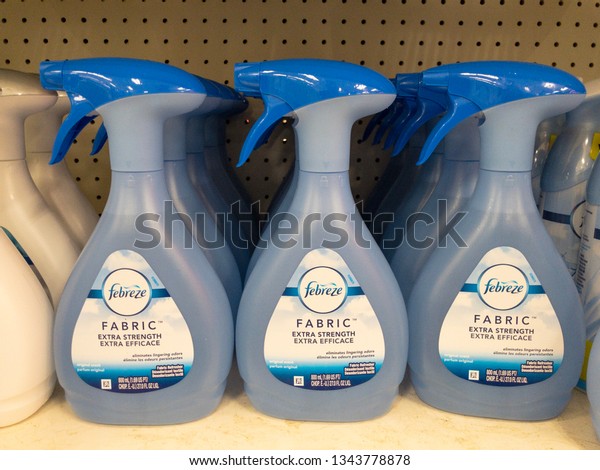Febreze Commercials: Do We Really Want to Go Noseblind?
Whenever I am asked to think about the
sense of smell, Febreze commercials are consistently the first thing to pop
into my head. Commercials for Febreze, an odor-eliminating spray, are
predictable and clique, but for some reason they remain one of the only
commercials I don’t completely hate. All Febreze commercials begin the same
way: with a person sitting in a room minding their own business. Another person
will enter the room, inhale deeply, then proceed to make a face of disgust. It
is then revealed that the room is filled with some putrid smell that the first
occupant has grown “noseblind” to. The person who is not noseblind will then
spray Febreze all over the room and the two inhale deeply, deriving abnormally
high levels of joy from the floral-scented chemicals.
 This concept of “noseblindness”, or the
inability to perceive a scent that has been present in the air for a while, is
intriguing to me. It seems as if we are constantly noseblind to almost
everything around us. I never realized what my home smelled like until I
returned from my first semester of college and was hit with the scent of tomato
sauce and vinegar. A few years ago there was an unfortunate incident where I accidentally spilled peppermint essential oil on the floor of my bedroom. After a
few minutes, I was no longer able to smell the peppermint, and thought the
scent had gone away. I was surprised when both of my brothers were almost
brought to tears by the strength of the smell and refused to even stand by my
doorway. I’ve always viewed going noseblind as both a blessing and a curse. On
one hand, there are certain smells, such as rotten eggs and burnt pancakes, that,
as soon as they hit me, I can’t wait to go noseblind to. On the other hand,
some smells are beautiful, and I don’t want to become acclimated to them. For
me smells, even bad smells, make me happy; I usually pay such little attention
to scent that being hit with a new smell feels like rediscovering an entire sense.
Going noseblind temporarily rids the smeller of the joys of an entire sense.
This concept of “noseblindness”, or the
inability to perceive a scent that has been present in the air for a while, is
intriguing to me. It seems as if we are constantly noseblind to almost
everything around us. I never realized what my home smelled like until I
returned from my first semester of college and was hit with the scent of tomato
sauce and vinegar. A few years ago there was an unfortunate incident where I accidentally spilled peppermint essential oil on the floor of my bedroom. After a
few minutes, I was no longer able to smell the peppermint, and thought the
scent had gone away. I was surprised when both of my brothers were almost
brought to tears by the strength of the smell and refused to even stand by my
doorway. I’ve always viewed going noseblind as both a blessing and a curse. On
one hand, there are certain smells, such as rotten eggs and burnt pancakes, that,
as soon as they hit me, I can’t wait to go noseblind to. On the other hand,
some smells are beautiful, and I don’t want to become acclimated to them. For
me smells, even bad smells, make me happy; I usually pay such little attention
to scent that being hit with a new smell feels like rediscovering an entire sense.
Going noseblind temporarily rids the smeller of the joys of an entire sense.
In Deborah Green’s book, The Aroma of
Righteousness: Scent and Seduction in Rabbinic Life and Literature, Green
discusses how modern day Western civilizations have deemed certain smells as
“bad”, and would rather have no scent at all than to be exposed to the odor. Green writes “Ultimately,
our obsession with “bad” odors had led to the desire to create an environment
with no scent at all.” This societal shift to value noseblindness has
unfortunately seem to infiltrate our society. We have created a culture that
only appreciates the aroma of baked goods and flowers. We are taught to not
appreciate or acknowledge most scents, and given the impression that, in a
world with many other ways of perceiving things, scent is irrelevant. But ignoring
our sense of smell is ignoring an entire valuable part of this world. Scent is
a sense that goes away as quickly as it came, but this class has shown me that
I should observe and appreciate each scent I perceive as it comes, until I too
grow noseblind to it.

I think this is a really interesting thing to point out. It is very interesting how we can really quickly become "blind" to a certain smell. I definitely notice that with my house, everybody's household seems to have a different smell, and it's really interesting how we don't notice it until we are away from it for a long time.
ReplyDelete